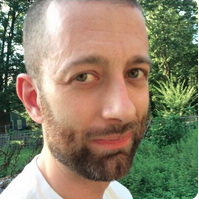I could definitely create those opportunities. I could go home every day, dive into articles, and essays, and youtube videos about what we’re going over in class. I could create connections and make these wonderful infographics to study with, but it wouldn’t be what’s on the test. And that’s what matters at the end of the day, even if nobody likes it.
And that is completely heartbreaking to me, for two reasons.
First, this student has had the desire to learn new, exciting things (and learn them deeply) kind of beaten out of her by waves of busy work.
And second, the student is right that the tests at the end are really what matter to most teachers in most classrooms in most schools around the country.
This is a problem.
It’s a problem that she (and most of the other writers, her classmates) all said basically the same thing: Yeah, that sounds great and all, but not as great when you’re trying to polish off your sixth hour of homework at 2 AM.
And it’s a personal problem for me. Deep learning is the pulse of my classes. I insist on students struggling and discovering things for themselves. I insist that they push each other and teach each other and support each other. I insist that they find connections and patterns where they thought there just were piles of words or cute stories.
Everything in my class is connected. I want students to read more deeply, to write more powerfully, and see the threads trailing out the windows and doors, drawing in history and chemistry and cognitive psych and calculus and physics. I want to say Here is a web. Now go make your own.
So we do things that are non-Englishy, on the surface. We draw pictures and make puppets with needles and thread and hot glue guns. We highlight documents in five different shades. We watch YouTube videos without words, and YouTube videos with too many words. We talk about how we learn, at the beginning, almost as much as what we actually need to learn.
And I model, hopefully, what voracious learning looks like. I pretend not to know answers to student questions. I steal from Ramsey, who says that introducing complexity and confusion and inquiry before giving any “answers” away is the path to true student learning.

 RSS Feed
RSS Feed
